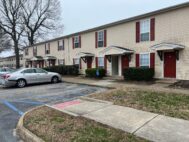Norfolk’s MacArthur Center to be demolished this year
The city of Norfolk announced Friday that it will close and demolish the MacArthur Center mall as part of a redevelopment plan for the site.
Beyond Loudoun: Why data centers are seeking new markets
Tighter zoning and power limits in Northern Virginia are pushing data center developers to other regions across the state.
Clarke to repurpose ex-prison site into business park
Clarke County’s long-planned second business park has taken a significant step toward becoming reality. In November 2025, the county’s board of supervisors unanimously voted to rezone 40 acres at 219 Ray of Hope Lane, off U.S. 340/522 near White Post, from agricultural to light industrial use. The property, part of the former White Post Correctional […]
New York firm selected to create Fort Monroe master plan
Hargreaves Jones has won a $1.8 million contract to develop a plan to shape the future of 565-acre Fort Monroe.
B2B distributor signs 96K SF lease in Springfield
A national apparel and promotional textiles distributor leased 95,598 square feet at the Robinson Terminal complex in Springfield.
Developer plans 450 apartments, retail in Fairfax
Falls Church-based Eakin Properties, a family-run real estate development and investment firm, is moving forward with plans to develop 450 apartments and 30,000 square feet of retail space in Fairfax County's Seven Corners area.
Sauer Properties taps new president
Richmond-based private real estate company Sauer Properties announced Tuesday that it has promoted Marshall French to president.
Cushman & Wakefield | Thalhimer announces CFO succession
Cushman & Wakefield | Thalhimer CFO Chip Dustin will retire in the first quarter of 2026 and be succeeded by Keishee Hill, the firm announced.
Fairfax’s commercial real estate market perks up
As vacancy remains elevated and older buildings struggle, companies like Iridium, Booz Allen and Workday are relocating to newer, amenity-rich offices in Tysons and Reston.
Chesterfield Towne Center sells to New York, Swiss companies
Chesterfield Towne Center, the largest enclosed mall in the Richmond area, was sold on Dec. 12 to JRE Partners and Anastacia AG for an undisclosed amount.
New York company buys Chesapeake apartments for $34.8M
Fairstead is investing $34.8 million to acquire and renovate Landmark Apartments, a 120-unit affordable housing complex in Chesapeake.
CBRE taps new leader for Richmond, Norfolk
Global real estate services and investment firm CBRE has promoted Sarah Cooley to managing director and market leader for southern Virginia.























